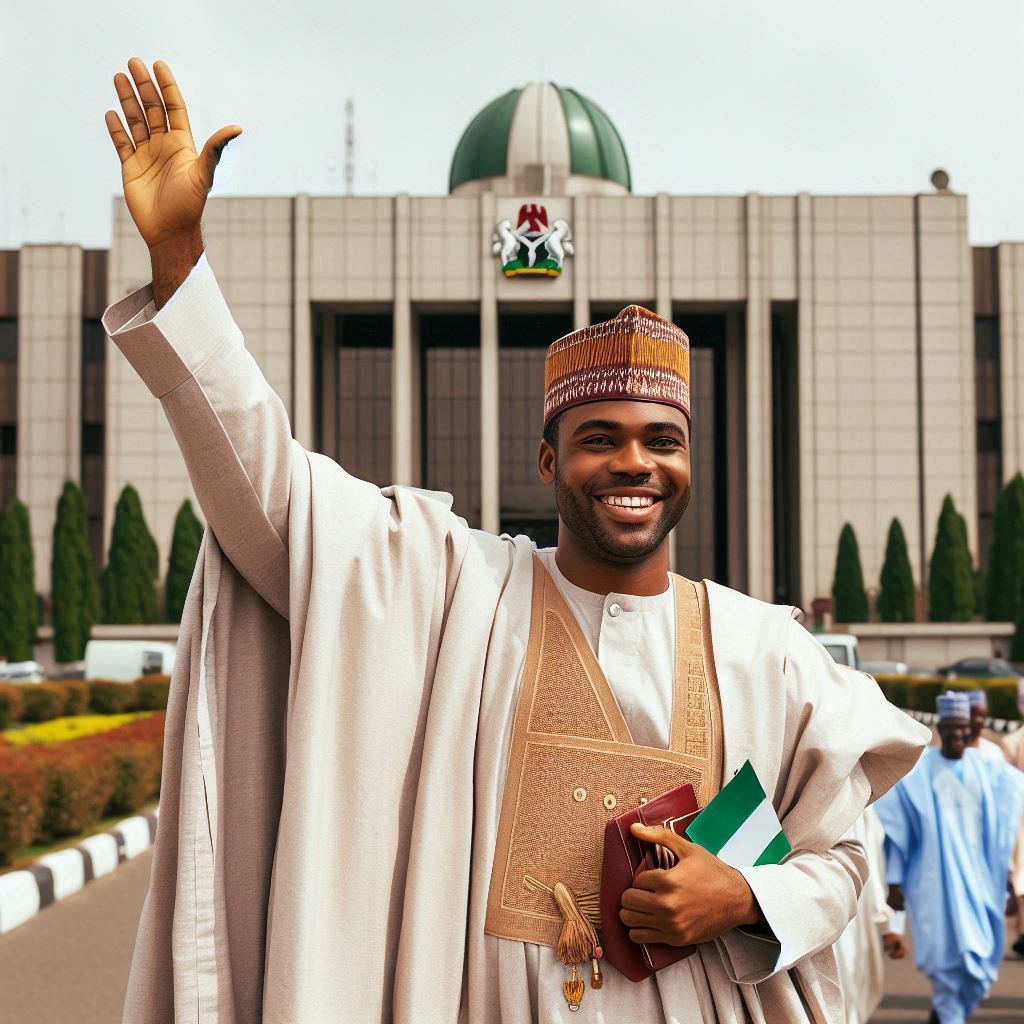Introduction
Comparative politics delves into the analysis of political systems across various countries, offering insights into their structures, functions, and dynamics.
In the context of Nigeria, a nation renowned for its diverse ethnicities, cultures, and political intricacies, comparative politics assumes paramount significance.
By scrutinizing Nigeria’s political landscape through a comparative lens, scholars and policymakers gain a nuanced understanding of the nation’s governance challenges, electoral processes, and policy formulations.
This discipline provides a framework for examining how Nigeria’s political institutions, such as its presidential system, federal structure, and multi-party democracy, compare with those of other nations.
Furthermore, the study of comparative politics in Nigeria facilitates the identification of best practices and lessons from other countries, aiding in the development of more effective governance strategies tailored to Nigeria’s unique context.
Thus, delving into comparative politics is not just an academic pursuit but a practical necessity for navigating Nigeria’s complex political terrain and fostering democratic stability and development.
Understanding the Nigerian Political System
Overview of the Political Structure in Nigeria
To succeed in comparative politics in Nigeria, understanding its political system is essential. Nigeria operates a federal republic, characterized by a complex framework of governance that intertwines federal, state, and local levels.
The political structure comprises three arms: executive, legislative, and judiciary. At the helm of the executive branch is the President, elected every four years through a democratic process.
The President is vested with significant powers, including the authority to appoint ministers, implement policies, and execute laws.
The legislative arm is embodied by the National Assembly, which consists of two chambers: the Senate and the House of Representatives. The National Assembly holds the responsibility of making laws, overseeing the executive, and representing the interests of the Nigerian people.
The judiciary, independent of the executive and legislative branches, upholds the rule of law and ensures justice is administered fairly and impartially.
The Supreme Court stands as the apex judicial body, with the authority to interpret the constitution and adjudicate disputes between branches of government.
Key Players and Institutions in Nigerian Politics
Key players in Nigerian politics extend beyond elected officials to encompass political parties, civil society organizations, traditional rulers, and influential individuals.
Political parties play a central role in shaping the political landscape, with prominent entities such as the All Progressives Congress (APC) and the People’s Democratic Party (PDP) dominating the scene.
Civil society organizations serve as watchdogs, advocating for accountability, transparency, and good governance.
Traditional rulers wield considerable influence, particularly at the grassroots level, serving as custodians of cultural heritage and intermediaries between the government and the people.
Institutions like the Independent National Electoral Commission (INEC) play a critical role in ensuring free, fair, and credible elections. INEC oversees the electoral process, registering voters, conducting elections, and resolving electoral disputes.
Nigerian politics is characterized by ethnic and religious diversity, which significantly influences political dynamics and alliances. Understanding these nuances is crucial for navigating the complexities of Nigerian politics.
Challenges such as corruption, insecurity, and socioeconomic disparities permeate Nigeria’s political landscape, necessitating informed analysis and proactive solutions.
Historical contexts, including transitions from military to civilian rule and the impact of colonialism, provide insights into the evolution of Nigerian politics.
Read: Language Arts Courses: What to Expect in Nigeria
Study the history of Nigerian politics
To succeed in comparative politics in Nigeria, delving into its historical context is indispensable. Nigerian politics has undergone significant evolution over time. Understanding the historical background provides invaluable insights.
Historical Background of Nigerian Politics
Nigeria’s political history dates back to pre-colonial times when various kingdoms and empires flourished across the region. These diverse entities had distinct governance structures, reflecting the rich tapestry of Nigerian society.
Colonial rule by the British Empire profoundly impacted Nigeria’s political landscape. The amalgamation of diverse ethnic groups into a single entity in 1914 laid the foundation for modern Nigeria.
Colonial administration introduced centralized governance systems, fostering a sense of unity while exacerbating ethnic tensions.
The struggle for independence in the mid-20th century marked a pivotal moment in Nigerian history. Led by nationalist movements and visionary leaders such as Nnamdi Azikiwe and Obafemi Awolowo, Nigeria gained independence from British rule in 1960.
However, post-independence politics were marred by ethnic rivalries, power struggles, and military interventions. The First Republic witnessed political instability, culminating in a series of coups and counter-coups that eventually led to military rule.
The civil war from 1967 to 1970, sparked by secessionist tensions in the southeastern region, further shaped Nigerian politics. The conflict highlighted deep-seated ethnic and regional divisions, leaving scars that persist to this day.
How Past Events Have Shaped the Current Political Landscape in Nigeria
The legacy of military rule profoundly influenced Nigeria’s political trajectory. Despite the return to civilian governance in 1999, the military’s imprint on Nigerian politics endures, impacting governance, security, and democracy.
Ethnic and religious tensions, exacerbated by historical grievances and political manipulation, continue to challenge Nigeria’s unity and stability. Issues such as resource control, marginalization, and identity politics remain contentious, shaping political discourse and electoral outcomes.
The struggle for democracy and human rights has been central to Nigeria’s political evolution. Civil society activism, media freedom, and electoral reforms have contributed to strengthening democratic institutions and processes.
The Fourth Republic, inaugurated in 1999, has seen alternating power between the two major political parties, the People’s Democratic Party (PDP) and the All Progressives Congress (APC).
However, challenges such as electoral fraud, corruption, and insecurity persist, undermining the credibility of democratic governance.
Generally, studying the history of Nigerian politics unveils the complexities and intricacies that define its current landscape.
By analyzing past events and their impacts, scholars and practitioners gain a deeper understanding of Nigeria’s political dynamics, enabling them to navigate its challenges and contribute to democratic progress.
Read: Internship Opportunities for Communication Arts Students
Analyze political ideologies in Nigeria
Political ideologies play a significant role in shaping the political landscape of Nigeria.
Here, we will provide an overview of different political ideologies present in the country and how they influence politics and policies.
Overview of different political ideologies present in Nigeria
- Democracy: Nigeria operates as a democratic nation, with elections held regularly to choose leaders at various levels of government.
- Socialism: There is a growing interest in socialist ideologies in Nigeria, with calls for more equitable distribution of resources.
- Capitalism: Capitalist principles are also prevalent in Nigeria, with a focus on entrepreneurship and free-market economy.
- Federalism: Nigeria is a federal state, with power shared between the central government and states to ensure regional autonomy.
- Militarism: Nigeria has a history of military rule, which has influenced its political culture and institutions.
How these ideologies influence politics and policies in the country
- Democracy: Democratic principles guide the political process in Nigeria, with an emphasis on free and fair elections.
- Socialism: Calls for socialist policies aim to address issues of poverty, inequality, and social injustice in Nigeria.
- Capitalism: Capitalist practices drive economic growth and development, attracting foreign investments and fostering entrepreneurship.
- Federalism: The federal system in Nigeria allows for decentralized governance and caters to the diverse needs of its regions.
- Militarism: The legacy of military rule still influences political decisions and security policies in Nigeria.
In review, the diverse political ideologies present in Nigeria shape the country’s politics and policies, reflecting the complex nature of its society and history.
Read: Impact of Communication Arts on Nigerian Media

Conduct research on Nigerian political parties
Overview of Major Political Parties in Nigeria
To excel in comparative politics in Nigeria, a comprehensive understanding of its political parties is crucial. Nigeria boasts a vibrant and diverse political landscape characterized by the presence of several major political parties.
The two predominant political entities are the All Progressives Congress (APC) and the People’s Democratic Party (PDP). These parties have dominated the political scene and wield significant influence over the country’s governance.
The APC emerged in 2013 as a coalition of opposition parties, presenting itself as a progressive force advocating for reform and change. It espouses principles of economic liberalism, emphasizing market-driven policies, privatization, and deregulation. The party prioritizes anti-corruption initiatives, infrastructural development, and national security.
On the other hand, the PDP stands as Nigeria’s oldest existing political party, tracing its roots back to the transition to civilian rule in 1999.
It boasts a broad-based platform focused on social welfare, poverty alleviation, infrastructure development, and national unity.
The PDP advocates for a more interventionist role of the state in the economy, favoring increased public spending and social programs to address societal inequalities.
Differences and Similarities Among the Political Parties
While the APC and the PDP differ in their ideological orientations and policy approaches, they share some commonalities in their objectives and priorities. Both parties prioritize economic development, national security, and good governance as essential pillars of their agendas.
Moreover, both parties face internal challenges, including factionalism, power struggles, and ideological inconsistencies, which often impact their cohesiveness and effectiveness.
These challenges underline the complexities of party politics in Nigeria and highlight the need for continuous adaptation and reform within political organizations.
Additionally, regional and ethnic considerations play a significant role in shaping party affiliations and voter behavior in Nigeria.
While the APC tends to have strongholds in the northern and southwestern regions of the country, the PDP maintains its influence in the southern and southeastern regions.
These regional dynamics influence electoral outcomes and the distribution of political power within the country.
Furthermore, smaller political parties also contribute to Nigeria’s political landscape, providing alternative platforms for political expression and representation of marginalized groups.
Although these parties may not wield the same level of influence as the major political players, they play a crucial role in diversifying political discourse and expanding democratic participation.
Ultimately, conducting thorough research on Nigerian political parties is essential for gaining insights into the dynamics of the country’s political system.
Understanding the ideologies, objectives, and challenges of major political parties is instrumental in navigating Nigeria’s complex political terrain and contributing to informed comparative analyses.
Read: Digital Media Trends in Communication Arts
Stay Informed on Current Political Events
To navigate the intricate landscape of comparative politics in Nigeria, it’s imperative to remain well-versed in ongoing political occurrences. Here’s why:
Importance of Keeping Up-to-Date with Political News in Nigeria
Staying informed offers a window into the dynamic and ever-evolving political climate of Nigeria. It provides crucial insights into the multifaceted layers of Nigerian politics, from local governance to international relations.
By staying abreast of current political events, individuals gain a nuanced understanding of the prevailing socio-political dynamics, policy debates, and legislative agendas shaping the nation’s trajectory.
Access to timely and relevant political news empowers citizens to actively engage in civic discourse, exercise their democratic rights, and participate meaningfully in the governance process.
Transform Your Career with Expert Guidance
Get personalized mentorship consulting that’s tailored to your unique path. Our expert advice is actionable and exclusive.
Get StartedKeeping up-to-date with political developments enables individuals to hold elected officials and government institutions accountable for their actions, policies, and decisions. It fosters transparency, accountability, and good governance.
How to Analyze and Interpret Political Events in the Country
Analyzing political events requires a multifaceted approach that goes beyond surface-level reporting. It involves critically examining the context, motives, and implications underlying each event.
Start by delving beneath the headlines to uncover the historical, cultural, and socio-economic factors influencing political developments. Understanding the root causes provides valuable insights into the broader context of Nigerian politics.
Consider the perspectives of diverse stakeholders, including political actors, civil society organizations, marginalized communities, and the general populace. Each viewpoint offers a unique vantage point that contributes to a comprehensive understanding of the situation.
Evaluate the credibility and reliability of news sources to ensure accurate and unbiased information. Cross-referencing multiple sources helps verify facts and discern truth from misinformation or propaganda.
Analyze the potential impact of political events on various sectors of society, including economic stability, social cohesion, and human rights. Assessing these implications allows for informed decision-making and proactive engagement.
Examine the reactions and responses of political actors and institutions to gauge the significance and potential outcomes of each event. Pay attention to policy responses, public statements, and legislative actions that may shape future developments.
Engage in constructive dialogue with peers, experts, and stakeholders to exchange perspectives, challenge assumptions, and foster a deeper understanding of complex political issues.
Utilize analytical frameworks, such as comparative methodologies, political theories, and historical analogies, to contextualize and interpret political events within broader global and historical contexts.
By staying informed, analyzing events critically, and interpreting developments accurately, individuals can navigate Nigeria’s political landscape with confidence and contribute meaningfully to the advancement of comparative politics.
Develop critical thinking and analytical skills
In the realm of comparative politics in Nigeria, the cultivation of critical thinking and analytical prowess is paramount. Here’s a comprehensive exploration of its significance and strategies for development:
Importance of Critical Thinking in Comparative Politics
Critical thinking serves as a cornerstone in the study and analysis of political phenomena within Nigeria. It empowers individuals to dissect intricate issues, unravel underlying complexities, and arrive at well-informed conclusions.
Within the context of comparative politics, critical thinking enables scholars and practitioners to delve beyond surface-level observations. It encourages the exploration of underlying structures, processes, and ideologies that shape political systems across different nations.
By fostering critical thinking skills, individuals enhance their capacity to engage with diverse perspectives, challenge assumptions, and evaluate the validity of arguments.
This intellectual autonomy is essential for navigating the multifaceted landscape of Nigerian politics with clarity and precision.
Furthermore, critical thinking promotes intellectual honesty and integrity, encouraging individuals to confront biases, question preconceptions, and seek empirical evidence to support their analyses.
In an era marked by misinformation and propaganda, this commitment to evidence-based reasoning is indispensable for discerning truth from falsehood.
How to Analyze and Evaluate Different Political Perspectives
Developing critical thinking skills begins with actively seeking out a diverse array of political perspectives from reputable sources. This may include engaging with scholarly literature, analyzing policy reports, and consuming news content from varied media outlets.
Once exposed to different viewpoints, individuals can initiate the process of analysis by interrogating the underlying assumptions, biases, and agendas inherent in each perspective.
This entails probing the evidence presented, evaluating the logic of arguments, and assessing the credibility of sources.
Comparative analysis emerges as a powerful tool for discerning patterns, similarities, and differences across various political perspectives.
By juxtaposing contrasting viewpoints and exploring their implications within different contexts, individuals gain a deeper appreciation for the complexity of political phenomena.
Furthermore, engaging in respectful dialogue with individuals holding divergent opinions fosters intellectual growth and empathy. By actively listening to alternative viewpoints and engaging in constructive debate, individuals broaden their perspectives and refine their analytical skills.
Applying conceptual frameworks and theoretical lenses enhances the analytical process, providing individuals with a structured approach to deconstructing complex political issues.
This may involve drawing upon theories from political science, sociology, economics, and other relevant disciplines to elucidate underlying dynamics and trends.
Engage in political discussions and debates
Engaging in political discussions and debates is crucial for success in comparative politics in Nigeria. Here are some reasons why it’s essential:
Benefits of engaging in discussions with peers and experts
- Exchange of ideas: Through discussions, you can exchange ideas with your peers and experts in the field, gaining new perspectives and insights.
- Increased knowledge: Engaging in political conversations helps to expand your knowledge base and deepen your understanding of the subject matter.
- Networking opportunities: Discussions and debates provide networking opportunities that can be beneficial for your career in comparative politics.
- Improved critical thinking: Debating political issues challenges your critical thinking skills, helping you to analyze complex problems effectively.
- Enhances communication skills: Engaging in discussions hones your communication skills, allowing you to articulate your ideas more effectively.
How to respectfully debate political issues and gain new insights
- Listen actively: Respectfully debate by listening attentively to others’ viewpoints before presenting your arguments.
- Maintain civility: Avoid personal attacks and derogatory comments during debates to ensure a respectful and productive discussion.
- Research and prepare: Before engaging in a debate, research the topic thoroughly to present well-informed arguments and gain new insights.
- Be open-minded: Approach debates with an open mind, willing to consider different perspectives and learn from others’ viewpoints.
- Seek clarification: If you don’t understand a point during a discussion, ask for clarification to ensure a clear understanding of the topic.
Therefore, engaging in political discussions and debates is a valuable tool for success in comparative politics.
By exchanging ideas, increasing knowledge, networking, improving critical thinking, and enhancing communication skills, you can broaden your understanding of political issues and contribute meaningfully to the discourse in Nigeria.
Find Out More: Career Opportunities in Political Science in Nigeria
Explore Further: Prominent Historical Events in Nigerian Curriculum
Find Out More: Future Trends in African and Asian Studies
Network with political professionals
Succeeding in Comparative Politics in Nigeria requires networking with political professionals. Here is how you can achieve this
Importance of Building a Professional Network in Nigerian Politics
Building a professional network in Nigerian politics is pivotal for success in comparative politics. Networking allows access to valuable insights, resources, and opportunities within the political landscape.
Establishing connections with political professionals and experts facilitates the exchange of ideas, collaboration on research projects, and mentorship opportunities.
Networking offers firsthand exposure to the realities of Nigerian politics, providing nuanced perspectives beyond theoretical knowledge. Engage in political events, conferences, and seminars to connect with like-minded individuals passionate about Nigerian politics.
How to Connect with Political Professionals and Experts in the Field
Actively engage in political discussions online to connect with professionals. Seek mentorship from experienced practitioners for guidance. Attend tailored workshops to expand knowledge.
Collaborate on research for credibility. Utilize alumni networks to connect with active professionals. Volunteer for campaigns to build relationships. Utilize LinkedIn to connect with professionals.
Engage with political organizations to broaden network. Attend public forums to interact with policymakers. Cultivate relationships with journalists for visibility. Network strategically by identifying aligned experts.
Maintain relationships by staying in touch. Listen and learn from experienced professionals. Foster professionalism for trust. Continuously expand network for success in Nigerian politics.
You Might Also Like: Cultural Studies in African and Asian Studies Programs
Conclusion
In wrapping up our discourse on succeeding in comparative politics within the Nigerian context, it is imperative to reiterate the significance of our discussions.
Throughout this section, we have emphasized the critical importance of understanding the complexities inherent in Nigeria’s political landscape through the lens of comparative analysis.
By encapsulating the essence of our discussion, we underscore the necessity for aspiring scholars and practitioners to immerse themselves in the study of comparative politics, leveraging insights garnered from diverse political systems worldwide.
This proactive engagement equips individuals with the requisite knowledge and skills to navigate the intricate nuances of Nigerian politics effectively.
In closing, we extend our encouragement to all readers to embark on the journey of mastering comparative politics in Nigeria with zeal and determination.
Embrace the challenges as opportunities for growth, and remain steadfast in your commitment to contributing positively to Nigeria’s democratic advancement.
With perseverance and dedication, success in comparative politics becomes not only achievable but also instrumental in shaping Nigeria’s political landscape for the betterment of society.




